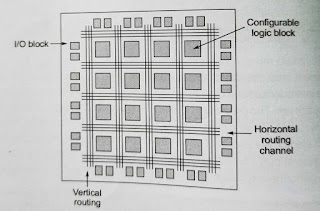VLSI : Skills and tools
Actually, there are basically two tracks in the VLSI,
1)digital
2)analog
As a first step we first need to decide whether you choose analog or digital track. These two options have good job opportunities and both of these are equally interesting. There is one more option which is Analog Mixed Signal which include both analog part as well as digital. You can think of digital design, analog and RF design, functional verification and recent fields such as mixed signal verification for which you require a specialized skill set.
The next point is that you need to have very good understanding about the subjects/topics such as CMOS, different logic family, basic knowledge over writing and simulating in Verilog or VHDL and other software such as Spice, automation with Unix or pearl. You need to be good enough in subjects like Basic Electronics, CMOS VLSI, Verilog and System Verilog basics, UVM basics, Scripting – PERL, Computer Architecture, C programming.
Almost all the companies use Verilog for design. Few companies started using System Verilog for design. System Verilog is really good for verification because it supports object-oriented programming. There are few libraries in System Verilog such as OVM/UVM which can be used in silicon verification. There are few courses on Udemy related to UVM if you want to know more about that. Other than these skills you may require to know about scripting languages such as pearl, python, shell, etc. A good description and tutorial are available on tutorial points website. Practical application of these concepts is also important, you can do some projects or look for internship to apply all your knowledge. One more option for application is Open Cores which hosts for different digital gateway projects and supports users by allowing them to present their projects, managing the projects, etc. There are certain simulators and waveform viewers are available on web free of cost such as EDA playground by using which you can write and simulate your own code. They also provide lot of examples to refer. Also, there are different useful websites like asic-world.com, testbench.in, cluelogic.com which are useful for a VLSI engineer.
Don’t running after next shiny thing out there.You first need to be perfect in digital logic, you should spend a lot of hours understanding the digital logic in depth. Then try with some basic circuits, try to write codes for them in Verilog generate waveforms, analyze them, try to change different constrains such as timing, size, power and try to observe changes in output.
Author -
Rajesh Adam
Source/Courtesy for Picture:
1.https://images.app.goo.gl/iedsx3XsDXNsNGd3A
2.https://images.app.goo.gl/MSVrbqy38kM1q7Sr8
3.https://images.app.goo.gl/4uUn8v9ZkeP6qwVY9
4.https://images.app.goo.gl/RDpQKfa5yyDSAhK97
5.https://images.app.goo.gl/C9PSLRufcpo4UzP3A
Reference :
https://www.quora.com/What-are-skills-required-needed-for-a-digital-VLSI-engineer-focus-on-front-end-How-can-I-learn-them







nice blog 👌
ReplyDeleteNice work guys
ReplyDeleteThanks
DeleteExcellent
ReplyDelete✌️
DeleteNice job 👌😍
ReplyDeleteNice and informative about VLSI 👌
ReplyDeleteThank you
DeleteNice work👌
ReplyDeleteMast
ReplyDeleteGood
ReplyDeleteWow !! Nice blog!! Keep it up bro
ReplyDeleteThis comment has been removed by the author.
ReplyDelete👍🏻👍🏻
ReplyDeleteGood 👍👍
ReplyDeleteGreat efforts Guys!
ReplyDeleteGood job guys this can actually help many students
ReplyDeleteGood work!!!
ReplyDeleteThanks!
DeleteGood one
ReplyDeleteVery informative!
ReplyDeletecheck other posts too !
DeleteNice one
ReplyDeleteVery informative!
ReplyDeleteThanks ✌️
DeleteVery well presented. Excellent information
ReplyDelete